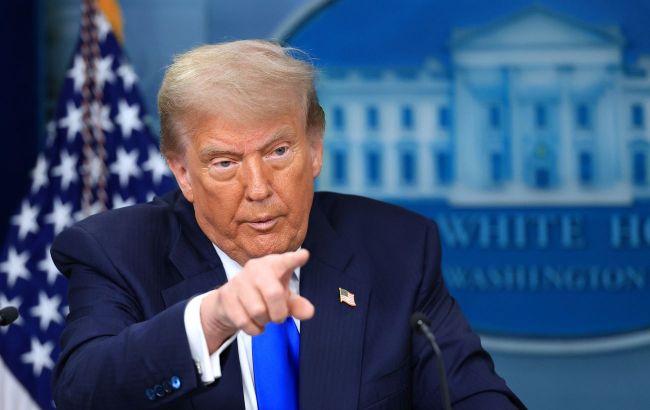Trump urges Japan's PM to soften stance on Taiwan after call with Xi
 Photo: U.S. President Donald Trump (Getty Images)
Photo: U.S. President Donald Trump (Getty Images)
After a conversation with China's leader Xi Jinping, US President Donald Trump called Japan’s Prime Minister Sanae Takaichi and urged her to soften her tone regarding Taiwan, according to The Wall Street Journal.
According to the media outlet, a few days after the Japanese prime minister angered China by suggesting that a Chinese attack on Taiwan could trigger a military response from Tokyo, Xi Jinping held a half-hour phone conversation with Trump.
He emphasized China’s historical claims to Taiwan, as well as the shared responsibility of Washington and Beijing for managing global order.
According to Japanese and American officials, later that same day, Trump arranged a call with the Japanese prime minister and advised her not to provoke Beijing on Taiwan’s sovereignty.
Japanese government officials called this call a troubling signal. In their view, the US president appears more interested in preserving a trade truce with China than in supporting Tokyo’s “firm position” on Taiwan.
"The United States' relationship with China is very good, and that’s also very good for Japan, who is our dear and close ally, "Trump said after the conversation, adding that the US had signed wonderful trade agreements with Japan, China, South Korea, and many other countries, and that the world was at peace — and he emphasized the need to keep it that way.
The office of Japan’s prime minister declined to comment.
The media outlet notes that this incident underscores how trade diplomacy and geopolitical tensions, particularly concerning Taiwan, are now deeply intertwined. Trump is trying to maintain a fragile balance between stimulating economic ties with China and supporting allies in the region.
Conversation between Trump and Xi Jinping
As a reminder, on Monday, November 24, US President Donald Trump and China’s leader Xi Jinping held a phone conversation.
During the conversation, the Chinese leader outlined Beijing’s fundamental position regarding Taiwan. Xi Jinping stressed that the “return of Taiwan to China” is an inseparable part of the postwar international order.
At the same time, Beijing reaffirmed its tough stance on any manifestations of Taiwanese autonomy.
Earlier, the spokesperson for China’s Taiwan Affairs Office, Peng Qingnian, stated that Beijing does not rule out the use of force against the island, while expressing readiness for "peaceful reunification" under the "one country, two systems" model.
It is worth noting that China has considered Taiwan part of its territory for many years and refers to its government as separatist. Historically, remnants of the anti-communist Kuomintang entrenched themselves on the island in 1949 after losing the civil war to Mao Zedong.
Meanwhile, the authorities in Taipei insist that Taiwan is a sovereign state with its own political and economic systems.
The People’s Liberation Army of China regularly conducts large-scale exercises in the Taiwan Strait region, practicing scenarios for blockading the island and a possible invasion.
At the same time, Western intelligence services warn that China may invade Taiwan as early as November 2026.
The dispute between China and Japan escalated after a statement by Japan’s Prime Minister Sanae Takaichi, who told lawmakers that a potential Chinese attack on Taiwan could jeopardize Japan’s existence and, theoretically, lead to a military response.
Officials had previously avoided making such assessments so as not to provoke Beijing.

